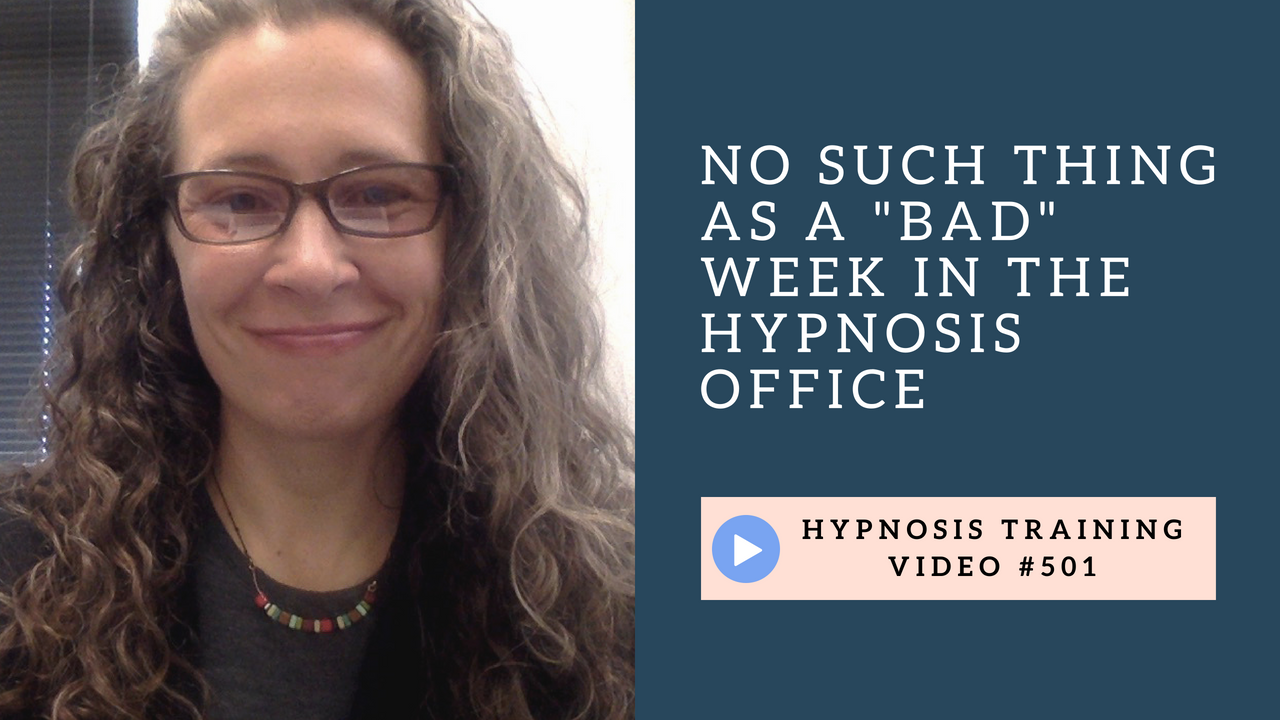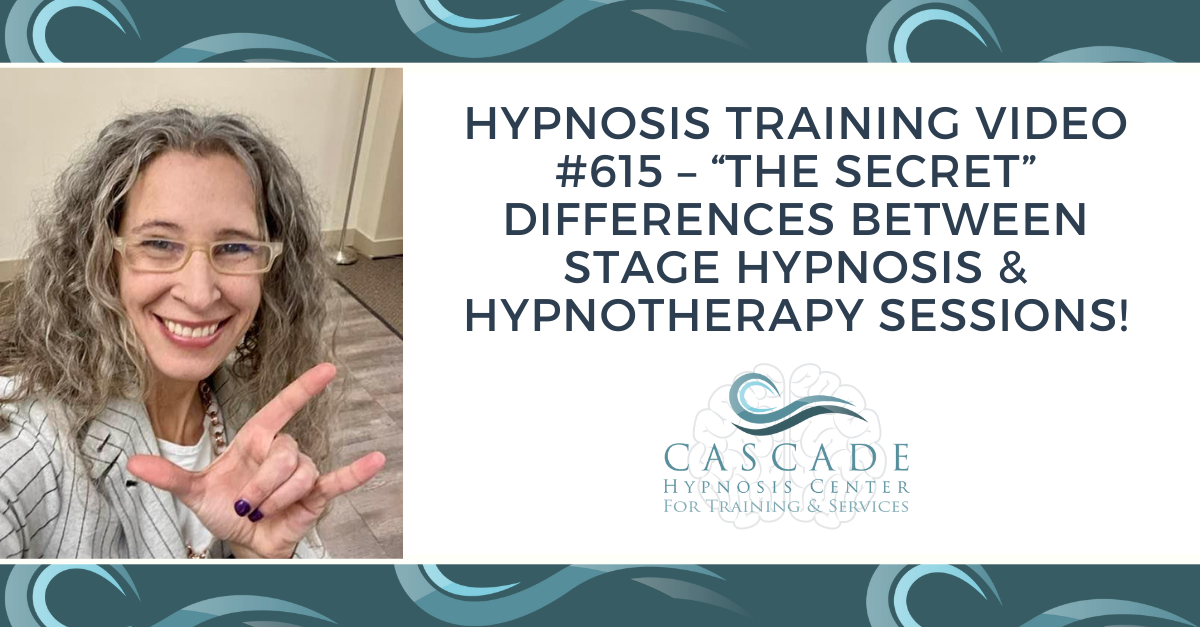Three Things I Wish I Would Have Known When Starting My Hypnosis Practice
By Erika Flint, BA, MCPHI, BCH, OB
Originally published in the Journal of Hypnotism
Do you remember what you felt like when you completed your hypnosis certification training?
Were you excited, overwhelmed, hopeful?
I was ecstatic. I wanted to tell everyone I knew about hypnosis and how it could help them.
I imagine it's like that for most new hypnotists. You've found something you love that helps people in significant and meaningful ways. You want to share it with the world. It's exciting and invigorating.
Looking back over the last six years in my hypnosis career helping thousands of clients, I would change some things, but not many.
There were lessons learned as any new business owner can tell you, but overall the time was fulfilling and purposeful.
Here are the top three things I wish I would have known when starting my hypnosis practice.
#1: Clients Don’t Care About Hypnosis, They Want Their Problem Solved
Most of our clients don’t care about hypnosis, the techniques you use, or where or who you trained with.
They want their problem solved.
When I first started, I was so enamored with hypnosis, I made the mistake of talking about hypnosis too much.
What I should have done is talk first about resolving my client’s issue, then about hypnosis. This is true for how you present your work online, and in person.
Here’s an example from a website I reviewed recently:
The original version focused on hypnosis and training:
“I’m a consulting hypnotist and have trained in the most effective hypnosis techniques available.”
The upgraded focuses on resolving the clients’ issues:
“I help women regain their self-esteem and lose weight easily and naturally with hypnosis so they can get back to enjoying life with their family.”
On your website and in other written material, focus the content on your potential client - not about you and your background. Your experience and credentials are important to include, but not as the primary focus.
When speaking in person, ask questions. Then explicitly answer them with regards to your client's perceived issue.
One of the best questions to ask potential clients is, "how is this issue impacting your life?" Then listen and reply with how hypnosis can help resolve that issue. Follow that with a client success story that is relative to their situation for added clarity.
#2 Allow Your Clients to Discover their Own Solutions
Sometimes it seems obvious what the issue is with our clients and what they can do to resolve it. However, if you point out this insight and offer it directly to your client, they may not appreciate it. Worse yet, they may discount it precisely because you mentioned it.
It is always better for our clients to have their own insight.
When I first started as a hypnotist, I thought discovering the answers for my client's issues was part of the job! With experience, I now know it's not the answers that solve our clients' issues. It’s the wisdom they gain by discovering the insight on their own that makes the most significant impact.
If you hand your client the solution, they won’t have the benefit of learning how you got there.
Instead, you can help your client indirectly using the breadcrumb method.
In the breadcrumb method, you ask your client broad, ambiguous questions that can help direct them down an insightful path. The reality is we can never know what the solution is for our clients, only they know.
Here’s an example from a recent session with a client who had a father who never learned how to be a good father. I wanted her to realize there was nothing wrong with her. Her father did not have the skills to parent her in the way she needed as a young girl in this particular instance.
Instead of directly stating “Do you think your father had the skills necessary to help you with this?”
I asked an ambiguous and non-judgmental question. It focused her in the right direction, “Tell me about your father” I asked, and she came upon the insight herself.
“I’m understanding this now for the first time – my father really couldn’t support me in the way I needed, he didn’t know how. There was never anything wrong with me at all,” she realized.
This insight had significant positive impact on my client. She realized years of low-self-esteem were rooted in an erroneous belief. In an instant, she eliminated decades of feeling worthless and not good enough.
It’s possible she could have the same results had I asked her the question directly. For some clients, who generated the insight is not as important as the insight itself.
However, for many clients the mental and emotional steps it took to reveal the insight are just as important as the insight itself. Use the breadcrumb method whenever you can to help clients learn to uncover their own insights.
#3 YOU are your most important client
Do you know who your most important client is?
The answer is: it depends; if you’re with a client - they are your most important client.
When you’re not with a client, YOU are your most important client.
Hypnosis is a highly rewarding career. We get to help people with some of life's most challenging issues. To do that it takes hyper-focus and diligence towards self-care to always do our best work.
In the past, I'd made the mistake of putting off my own needs in service to my client. What I realize now, is that it's difficult to give our clients our best if we're not operating at 100%.
The answer is advanced self-care. Not standard self-care. You’ve likely heard all about standard self-care from hundreds of articles, memes, and stories.
Yes, it's important to take care of yourself physically. Get enough sleep, eat healthy food, get enough activity, and maintain healthy relationships with loved ones. That is standard self-care.
Beyond all that, advanced self-care means you have significant self-awareness into your own state of being. You continuously work to improve yourself by using your own techniques.
Advanced Self-Care includes:
· Awareness of your triggers and issues and using self-hypnosis or another practice to address and eliminate them.
· Regulate your emotions and state of being and actively transition from a low, or negative state, to a higher, positive and loving state.
· Regular practice of self-hypnosis to bring you peace and clarity.
· Alignment with your purpose and mission, with the ability to plan and grow.
Taking care of yourself with advanced self-care is a daily practice. You'll always an be in a state of becoming the best version of yourself – not only as a hypnotist, but as a parent, friend, spouse, and family member.
What about you, what are the top things you wish you knew when you first started practicing? Reach out at erika@CascadeHypnosisCenter.com and let me know.

-1.png)

